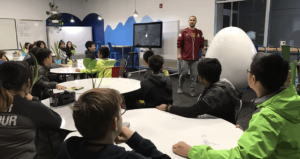MA "Innovation" Regs Block Innovation
Worst online learning law in America–that’s the title Massachusetts is about to earn. In a letter to the state board, Commissioner Mitchell Chester quotes Susan Patrick, the director of the International Association of K-12 Online Learning, but ignores all of her advice and proposes the worst online learning bill in America.
Chester proposes “additional controls and oversight with respect to virtual schools, given that it is still an unproven pedagogy.” Only 2 million students are learning online, so you can see why he’d call it unproven. Maybe he didn’t read the meta-analysis of 51 studies from the Department of Education that demonstrates that online/blended learning works better.
Proposed regs provide no waivers and default to districts–local superintendents sign off on all online learning. The regs suggest online learning may be appropriate for dropouts or pregnant, institutionalized, or other special needs. With districts in control, MA can be sure that few students will learning online and those that do will be bound by the same regs in their local high school.
Almost as bad as limiting schools to local districts is the 500 student size limit. It’s ok to have giant failing high schools but Mitchell wants to limit virtual schools–that makes great sense. Florida virtual serves 150,000 students but no virtual school in MA would serve more than 500. What exactly are we protecting here? It’s certainly not kids.
It’s a disaster to limit the internet to local districts with superintendent sign-off for enrollment. Limiting “innovation schools’ to local districts defeats the purpose of a law purportedly supporting innovation. It’s actually a clever oxymoron: call it innovation but block innovation.
As chair-elect of iNACOL, I’m offended that Commissioner Chester references and then ignores the advice from our organization. I’m more offended at his dramatic assault on parent/student choice.





0 Comments
Leave a Comment
Your email address will not be published. All fields are required.